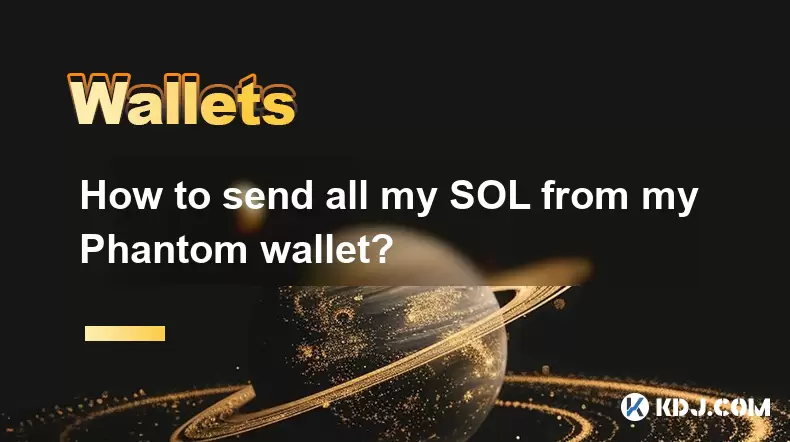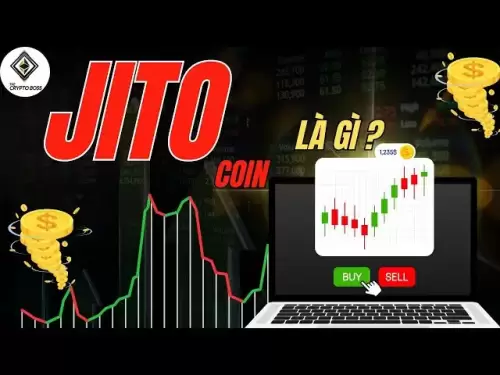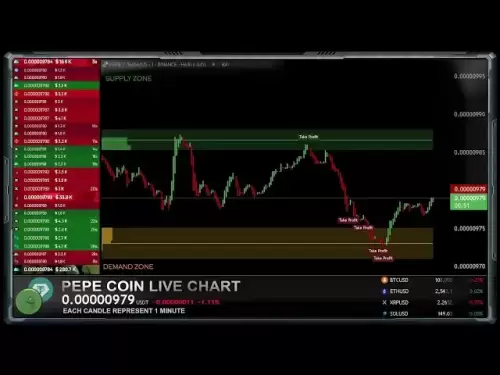-
 Bitcoin
Bitcoin $107,810.8710
-1.45% -
 Ethereum
Ethereum $2,531.4386
-1.75% -
 Tether USDt
Tether USDt $1.0000
-0.03% -
 XRP
XRP $2.2542
-0.99% -
 BNB
BNB $659.1350
-0.50% -
 Solana
Solana $148.5456
-2.40% -
 USDC
USDC $0.9999
-0.02% -
 TRON
TRON $0.2868
-0.44% -
 Dogecoin
Dogecoin $0.1666
-3.65% -
 Cardano
Cardano $0.5751
-2.36% -
 Hyperliquid
Hyperliquid $37.6845
-5.51% -
 Bitcoin Cash
Bitcoin Cash $494.9448
-0.65% -
 Sui
Sui $2.8396
-3.31% -
 Chainlink
Chainlink $13.2423
-2.59% -
 UNUS SED LEO
UNUS SED LEO $9.0482
0.02% -
 Stellar
Stellar $0.2467
-2.44% -
 Avalanche
Avalanche $17.8165
-3.63% -
 Shiba Inu
Shiba Inu $0.0...01158
-2.41% -
 Toncoin
Toncoin $2.7397
-3.42% -
 Hedera
Hedera $0.1560
-2.73% -
 Litecoin
Litecoin $85.8559
-2.34% -
 Monero
Monero $315.3710
-2.30% -
 Dai
Dai $1.0001
0.00% -
 Polkadot
Polkadot $3.3443
-2.03% -
 Ethena USDe
Ethena USDe $1.0001
0.01% -
 Bitget Token
Bitget Token $4.2888
-3.73% -
 Uniswap
Uniswap $7.3388
-1.57% -
 Aave
Aave $278.2986
-3.05% -
 Pepe
Pepe $0.0...09807
-3.67% -
 Pi
Pi $0.4563
-2.39%
Digital Asset Protection: A Detailed Explanation of the Advantages and Disadvantages of Hot Wallets vs. Cold Wallets
Hot wallets offer convenience for daily crypto transactions but are vulnerable to hacks, while cold wallets provide superior security for long-term storage.
Apr 18, 2025 at 05:57 am

Digital asset protection is a critical concern for anyone involved in the cryptocurrency space. The choice between hot wallets and cold wallets plays a significant role in securing your digital assets. This article delves into the advantages and disadvantages of both types of wallets, helping you make an informed decision on which might be best for your needs.
Understanding Hot Wallets
Hot wallets are digital wallets that are connected to the internet. They are designed for ease of use, allowing users to quickly send and receive cryptocurrencies.
Hot wallets are highly convenient for daily transactions because they enable users to access their funds rapidly. Examples of hot wallets include software wallets like MetaMask, mobile wallets like Trust Wallet, and exchange-hosted wallets like those found on Coinbase.
However, the primary disadvantage of hot wallets is their vulnerability to online threats. Since they are always connected to the internet, they are susceptible to hacking, phishing attacks, and other forms of cybercrime. Users must be vigilant about security measures such as two-factor authentication (2FA) and strong passwords to mitigate these risks.
Advantages of Hot Wallets
Hot wallets offer several advantages that make them attractive to many users.
- Convenience: Hot wallets are perfect for everyday transactions. They allow you to quickly send and receive cryptocurrencies, making them ideal for those who frequently trade or need to move funds.
- Accessibility: You can access your hot wallet from any device with an internet connection. This makes it easy to manage your assets on the go.
- User-Friendly Interface: Most hot wallets come with intuitive interfaces that are easy to navigate, even for beginners. This user-friendliness can be a significant advantage for those new to the cryptocurrency world.
Disadvantages of Hot Wallets
Despite their convenience, hot wallets have notable drawbacks that users must consider.
- Security Risks: As mentioned, hot wallets are more susceptible to hacking and other cyber threats. A single security breach can lead to the loss of all your assets.
- Dependence on Third Parties: Many hot wallets, especially those hosted by exchanges, require you to trust a third party with your funds. This can introduce additional risks, as the security of your assets depends on the exchange's security measures.
- Potential for Human Error: With hot wallets, there is a higher risk of human error, such as falling for phishing scams or accidentally sending funds to the wrong address.
Understanding Cold Wallets
Cold wallets, on the other hand, are offline storage solutions for cryptocurrencies. They are not connected to the internet, which significantly enhances their security.
Cold wallets are ideal for long-term storage of large amounts of cryptocurrency. Examples include hardware wallets like Ledger and Trezor, and paper wallets, which are physical documents that contain your private keys.
The primary advantage of cold wallets is their high level of security. Since they are not connected to the internet, they are immune to online hacking attempts. However, the trade-off is that they are less convenient for frequent transactions.
Advantages of Cold Wallets
Cold wallets offer several compelling benefits, particularly for those looking to secure their assets for the long term.
- Enhanced Security: The offline nature of cold wallets makes them highly resistant to hacking and cyber attacks. This is crucial for protecting large amounts of cryptocurrency.
- Control Over Private Keys: With cold wallets, you have full control over your private keys. This means you are not reliant on a third party to secure your funds.
- Long-Term Storage: Cold wallets are perfect for storing cryptocurrencies that you do not need to access frequently. They provide peace of mind for those looking to hold their assets for the long term.
Disadvantages of Cold Wallets
While cold wallets offer superior security, they also come with their own set of challenges.
- Less Convenient: Cold wallets are not as user-friendly as hot wallets. Accessing your funds can be more cumbersome, especially if you need to make frequent transactions.
- Cost: Hardware wallets, a popular type of cold wallet, come with a cost. While the investment can be worthwhile for securing large amounts of cryptocurrency, it may be a barrier for some users.
- Risk of Physical Loss or Damage: Since cold wallets are physical devices or documents, there is a risk of losing them or having them damaged. It's essential to keep them in a safe place and have backup solutions in place.
Choosing Between Hot and Cold Wallets
The decision between hot and cold wallets depends on your specific needs and circumstances.
If you need to make frequent transactions and prioritize convenience, a hot wallet may be the better choice. However, if you are looking to store large amounts of cryptocurrency for the long term and prioritize security, a cold wallet is likely more suitable.
It's also worth considering a hybrid approach, where you use both hot and cold wallets. You can keep a small amount of cryptocurrency in a hot wallet for daily use and store the majority of your assets in a cold wallet for added security.
Frequently Asked Questions
Q: Can I use both a hot wallet and a cold wallet at the same time?
A: Yes, many users opt for a hybrid approach, using a hot wallet for daily transactions and a cold wallet for long-term storage. This allows you to balance convenience and security.
Q: How do I transfer funds from a cold wallet to a hot wallet?
A: To transfer funds from a cold wallet to a hot wallet, follow these steps:
- Connect your cold wallet to a computer (if it's a hardware wallet).
- Open the wallet software and enter your PIN or password.
- Select the cryptocurrency you want to transfer and enter the amount.
- Copy the receiving address from your hot wallet and paste it into the send field of your cold wallet.
- Confirm the transaction on your cold wallet.
- Wait for the transaction to be processed on the blockchain.
Q: Are there any alternatives to hot and cold wallets?
A: Yes, there are other types of wallets, such as multi-signature wallets, which require multiple signatures to authorize a transaction, and custodial wallets, where a third party holds your private keys. Each type has its own set of advantages and disadvantages.
Q: How can I ensure the security of my hot wallet?
A: To enhance the security of your hot wallet, consider the following measures:
- Use strong, unique passwords and enable two-factor authentication (2FA).
- Keep your wallet software up to date to protect against known vulnerabilities.
- Be cautious of phishing attempts and never share your private keys or seed phrases.
- Use reputable wallet providers and regularly back up your wallet data.
Disclaimer:info@kdj.com
The information provided is not trading advice. kdj.com does not assume any responsibility for any investments made based on the information provided in this article. Cryptocurrencies are highly volatile and it is highly recommended that you invest with caution after thorough research!
If you believe that the content used on this website infringes your copyright, please contact us immediately (info@kdj.com) and we will delete it promptly.
- KuCoin, AI Incentives, and Gaming RWA: A New Era?
- 2025-07-08 14:30:12
- Meme Token Mania: SPX6900, TOKEN6900, and the Degens Driving Crypto's Brain Rot
- 2025-07-08 14:30:12
- Bitcoin Gains and Strategy Reports: What's the Haps?
- 2025-07-08 15:10:12
- Ripple, XRP ETF, Latest Data: Hopes Fade but Innovation Blooms?
- 2025-07-08 15:10:12
- Bitcoin Gains, Strategy Posts, and Weekly Buys: Decoding the Crypto Craze
- 2025-07-08 15:30:11
- Eric Trump, Bitcoin Asia, and Hong Kong: A Power Trio Shaping Crypto's Future
- 2025-07-08 14:50:12
Related knowledge

How to cancel a pending transaction in Phantom wallet?
Jul 03,2025 at 07:21pm
Understanding Pending Transactions in Phantom WalletA pending transaction in the Phantom wallet occurs when a user initiates a transfer or interaction with the Solana blockchain, but it hasn't yet been confirmed by the network. This can happen due to various reasons such as low transaction fees, network congestion, or incorrect gas settings. It's import...

How to see the estimated value of my tokens in Phantom wallet?
Jul 04,2025 at 12:21am
What is Phantom Wallet?Phantom wallet is one of the most popular cryptocurrency wallets designed for the Solana blockchain. It allows users to store, send, receive, and manage various tokens built on Solana, including SPL tokens and NFTs. The wallet offers a user-friendly interface, making it accessible for both beginners and advanced users in the crypt...

How to lock my Phantom wallet extension?
Jul 03,2025 at 11:14am
What Is the Phantom Wallet and Why Lock It?The Phantom wallet is a popular non-custodial cryptocurrency wallet designed for interacting with the Solana blockchain. Supporting both browser extensions and mobile apps, Phantom allows users to store, send, receive, and stake SOL tokens, as well as interact with decentralized applications (dApps). Securing y...

Does Phantom wallet offer two-factor authentication (2FA)?
Jul 03,2025 at 09:00am
Understanding Phantom Wallet and Its Security FeaturesPhantom wallet is a widely used non-custodial cryptocurrency wallet that supports the Solana blockchain. It allows users to store, send, receive, and interact with decentralized applications (dApps) seamlessly. As security is a top priority for any crypto wallet user, security features like two-facto...

How to send all my SOL from my Phantom wallet?
Jul 06,2025 at 10:00am
Preparing to Send SOL from Your Phantom WalletBefore initiating any transaction, it is crucial to ensure that your Phantom wallet is fully set up and connected to the correct network. Phantom supports multiple networks, but for sending SOL, you must be on the Solana blockchain. Confirm this by checking the network indicator in the top-right corner of th...

What is "rent" on Solana and how does it affect my Phantom wallet?
Jul 02,2025 at 08:35pm
Understanding 'Rent' on SolanaIn the context of Solana, the term 'rent' refers to a storage fee that users pay for maintaining data on the blockchain. Unlike Ethereum, where storage costs are paid once via gas fees during contract deployment, Solana implements a recurring cost model to ensure efficient usage of network resources. This means that any acc...

How to cancel a pending transaction in Phantom wallet?
Jul 03,2025 at 07:21pm
Understanding Pending Transactions in Phantom WalletA pending transaction in the Phantom wallet occurs when a user initiates a transfer or interaction with the Solana blockchain, but it hasn't yet been confirmed by the network. This can happen due to various reasons such as low transaction fees, network congestion, or incorrect gas settings. It's import...

How to see the estimated value of my tokens in Phantom wallet?
Jul 04,2025 at 12:21am
What is Phantom Wallet?Phantom wallet is one of the most popular cryptocurrency wallets designed for the Solana blockchain. It allows users to store, send, receive, and manage various tokens built on Solana, including SPL tokens and NFTs. The wallet offers a user-friendly interface, making it accessible for both beginners and advanced users in the crypt...

How to lock my Phantom wallet extension?
Jul 03,2025 at 11:14am
What Is the Phantom Wallet and Why Lock It?The Phantom wallet is a popular non-custodial cryptocurrency wallet designed for interacting with the Solana blockchain. Supporting both browser extensions and mobile apps, Phantom allows users to store, send, receive, and stake SOL tokens, as well as interact with decentralized applications (dApps). Securing y...

Does Phantom wallet offer two-factor authentication (2FA)?
Jul 03,2025 at 09:00am
Understanding Phantom Wallet and Its Security FeaturesPhantom wallet is a widely used non-custodial cryptocurrency wallet that supports the Solana blockchain. It allows users to store, send, receive, and interact with decentralized applications (dApps) seamlessly. As security is a top priority for any crypto wallet user, security features like two-facto...

How to send all my SOL from my Phantom wallet?
Jul 06,2025 at 10:00am
Preparing to Send SOL from Your Phantom WalletBefore initiating any transaction, it is crucial to ensure that your Phantom wallet is fully set up and connected to the correct network. Phantom supports multiple networks, but for sending SOL, you must be on the Solana blockchain. Confirm this by checking the network indicator in the top-right corner of th...

What is "rent" on Solana and how does it affect my Phantom wallet?
Jul 02,2025 at 08:35pm
Understanding 'Rent' on SolanaIn the context of Solana, the term 'rent' refers to a storage fee that users pay for maintaining data on the blockchain. Unlike Ethereum, where storage costs are paid once via gas fees during contract deployment, Solana implements a recurring cost model to ensure efficient usage of network resources. This means that any acc...
See all articles

























































































